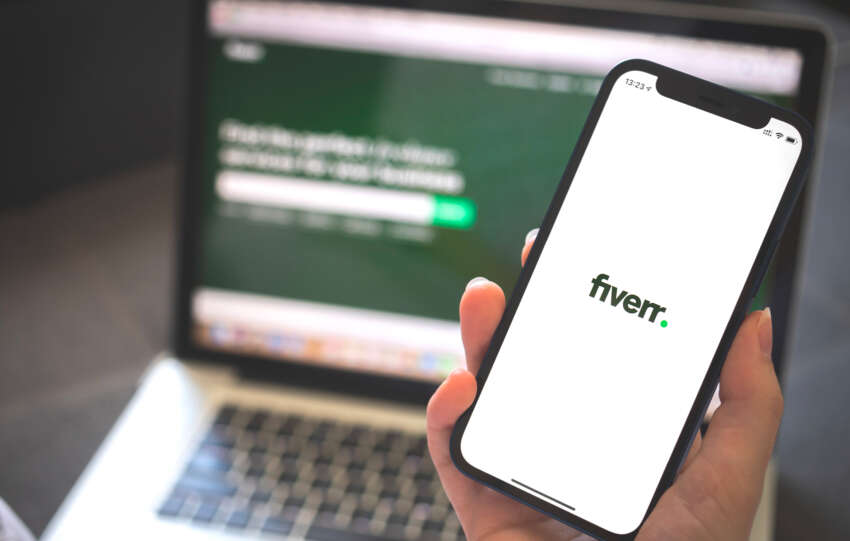
What Is Freelancing & What Does it Mean to Freelance?
There’s been a ton of buzz lately about freelancing. Many people see freelancing as their way out of the constraints normal corporate jobs place on your life. But what exactly do people mean when they talk about freelancing? And how can you get involved in it?
In this article, we will go over what freelancing is and who should consider becoming a freelancer.
What Is Freelancing
Freelancing is the act of providing services to clients as a self-employed individual. When you freelance, you work with clients to help them with something specific. Even though you are producing work for the clients, you aren’t technically employed by them.
There are many reasons people switch from working in the traditional workplace to freelancing. Freelancing offers the opportunity to work remotely and a flexible work schedule. It can also provide you with a better work-life balance. Of course, the quality of your work-life balance will depend on your ability to set boundaries and limit the work you take on.
What does a freelancer do?
While you might think there is only one answer to the question “what is freelancing?”, in reality the type of services that freelancers provide are almost endless. If you are interested in freelancing, the kind of services you provide will depend on the type of work you want to do and on the skillsets you have.
Freelancers typically work on a per-project or per-job basis for short term work. How “short term” that work really is can depend on a lot of things. For example, the freelancer platform Toptal reports that the average project length of it’s freelancers is 4-months. Many times projects are much shorter, though. Some projects might be able to be completed in a day, others in a week.
What if I can’t find work?
If looking for a new job every day sounds scary to you, don’t worry. Once you jump in you’ll be surprised by the amount of work out there. Once you are more experienced and have a client base built up, it’s likely you will have work flowing in without having to actively search for it.
What skills are required for freelancing?
The skillset you need is going to depend a lot on what kind of services you are providing. For example, a graphic designer is going to need a completely different skill set from a writer. And if you are a video editor, that’s a unique set of skills too.
However, there are some basic skills that all freelancers are going to need to have.
Time Management
This is one of the biggest differences between working for someone else and being your own boss. There will be no one to look over your shoulder and make sure you are on track to meet your deadlines.
Communicating With Clients
You don’t have to be a socialite to succeed in freelancing, but you are going to have to be able to communicate and work with clients effectively. Every client is going to have their own unique approach and needs. Some might be completely hands off. Other clients will want to be involved throughout the process.
The more you work with a diversity of clients, the better you will get at it. Some clients won’t understand the work you do or even what they want. As you gain expertise in your field, you’ll get better at explaining your work to potential clients and helping them to define the projects they need completed.
With time you will also get better at spotting red flag clients. In the beginning, you might be willing to take on any clients that will give you work. However, eventually you should grow your business to the point where you only take on clients that are a good match for you. This could be based on the projects and workloads they offer, their individual communication style or even just personality. Freelancing isn’t all that different from the workplace: the people you work with make a huge difference to your happiness!
Ability To Take Feedback
Arguably, this is important for any job. However, if you are working for a business or an organization and have a bad attitude towards feedback, you’ll still probably be able to hold onto your job for a while. This is because it can be difficult and expensive to hire and train new employees. Businesses often fall victim to the “sunk cost fallacy” when it comes to bad employees.
In freelancing, the ability to take feedback and grow will make or break you. A client has no obligation to hire you again. At the end of every project, a client gets to decide if they want to take you on for future work. If you can’t take feedback, you won’t be able to build client relationships and it’s likely that freelancing will feel like having to search for a new job every day.
What subject is best for freelancing?
The best niche for you will be the one you are most skilled at. Of course, it’s also important to provide work that is in demand. After all, if there are no clients who need your services, it’s going to be almost impossible to make money.
If you really have no idea where to start in deciding your niche, here’s a list of some high-paying freelance jobs:
- Programming and Software Development
- Social Media Video Marketing
- Web Design and Development
- Content Marketing/Writing
- Graphic Design
- Copywriters
- Video Editors
Another way you can figure out the right niche for you is by going on sites like Upwork and Fiverr. You can browse through their categories and see what is in demand. Fiverr is especially great for coming up with project ideas because of it’s structure. Fiverr allows freelancers to post “gigs” for clients to look through. If you look through some “gigs” in a category that interests you, it should be easy to come up with ideas about what kind of work you might want to offer.
How do I start freelancing?
Freelancing is a business, and the best way to start a new business is by making a business plan. Since you will just be working for yourself, this doesn’t have to be a formal document. However here are some things you should think through in order to create your business plan:
1. What are my goals for freelancing?
Do you want to work part-time? Or do you want freelancing to become your main career? How much money do you want to make? What kind of flexibility are you looking for? Everyone’s freelance careers are going to be unique to them. Answering some of these questions is a good place to start.
For some people, their goal is to become a digital nomad. For others, their goal is to stay in their hometown but just work part time. By figuring out your goals for freelancing, you are able to think about how to make your new business work for you.
2. What skills will be the basis of my freelancing business?
It’s important to play to your strengths in every part of life, and freelancing is no exception. What skills do you already possess that could make up the basis of your freelancing business? Don’t just think about what you can do but also what you want to do.
3. Who are my target clients?
Do you want to work with individuals or big businesses? On large projects or small ones? What kind of workstyle is best for you? Do you like hands on clients or people who let you run with your ideas? By imagining your ideal client, you have a better chance of creating the best freelancing business for you.
4. How will I package my services?
Once you know what skillset you are going to be operating with, it’s important to figure out how you are going to package your services. How would you explain the work you offer to a potential client? How will you charge? At this stage you should do some research on how other people in your field package and price their work. One way to do this is by going onto freelancing platforms and seeing what other freelancers offer.
5. Create A Portfolio
Whether it’s a website, a PDF you send to potential clients or just your profile on a freelancing platform, you want to make sure to showcase your work.
6. Connect With Clients
There are a few ways you can connect with clients. Check out the “How can I find clients?” section below for some ideas.
7. Legally Incorporate Your Buisness
We can’t give you legal advice, but it’s important to make sure your business is legitimate. The rules and regulations for starting a freelance business will depend on where you live, so make sure to do you research!
How can I find clients?
Freelancing Platforms
One of the best ways to find clients is by using freelancer platforms like Fiverr, Upwork, Freelancer and Toptal. We have written reviews on each of these platforms, along with comparison articles between many of them. You don’t have to choose just one! We recommend getting set up on a couple and seeing which works best for you.
The nice thing about freelancing platforms is that it gives you the opportunity to connect with clients you would not have otherwise had access to. There is also an added element of security when the transactions are facilitated through a third party. It’s much less common to get scammed. When you are working for a client directly, it requires a leap of faith that they will pay you at the end of the project.
Cold Calling
Cold calling refers to the act of calling up businesses or potential clients who you don’t know and offering your services.
Of course, in the modern day and age it’s probably best not to actually do this via the phone. You can find companies on LinkedIn and send them emails describing your services and offer to work with them.
Networking
Your first few jobs will likely be from your existing network. Tell the people you know that you are starting to freelance.
As you continue to work and build your portfolio, other people from your network will likely see and reach out to you. It’s a classic snowball effect.
Remember, freelancing platforms, cold calling, and networking can be used together to find potential clients!
The Bottom Line: Get Started Today!
Here on Freelancing Labs we lay out all the information you need to get started freelancing today. If this sounds like something you are interested in, download our FREE guide to becoming a freelancer in 30 days. Freelancing offers a great opportunity to transform your life and career.



![- [x] Make $36/Hour with EASY Online Jobs for Everyone](https://freelancinglabs.com/wp-content/uploads/2022/04/Make-36-Hour-with-EASY-Online-Jobs-for-Everyone-850x541.jpg)
